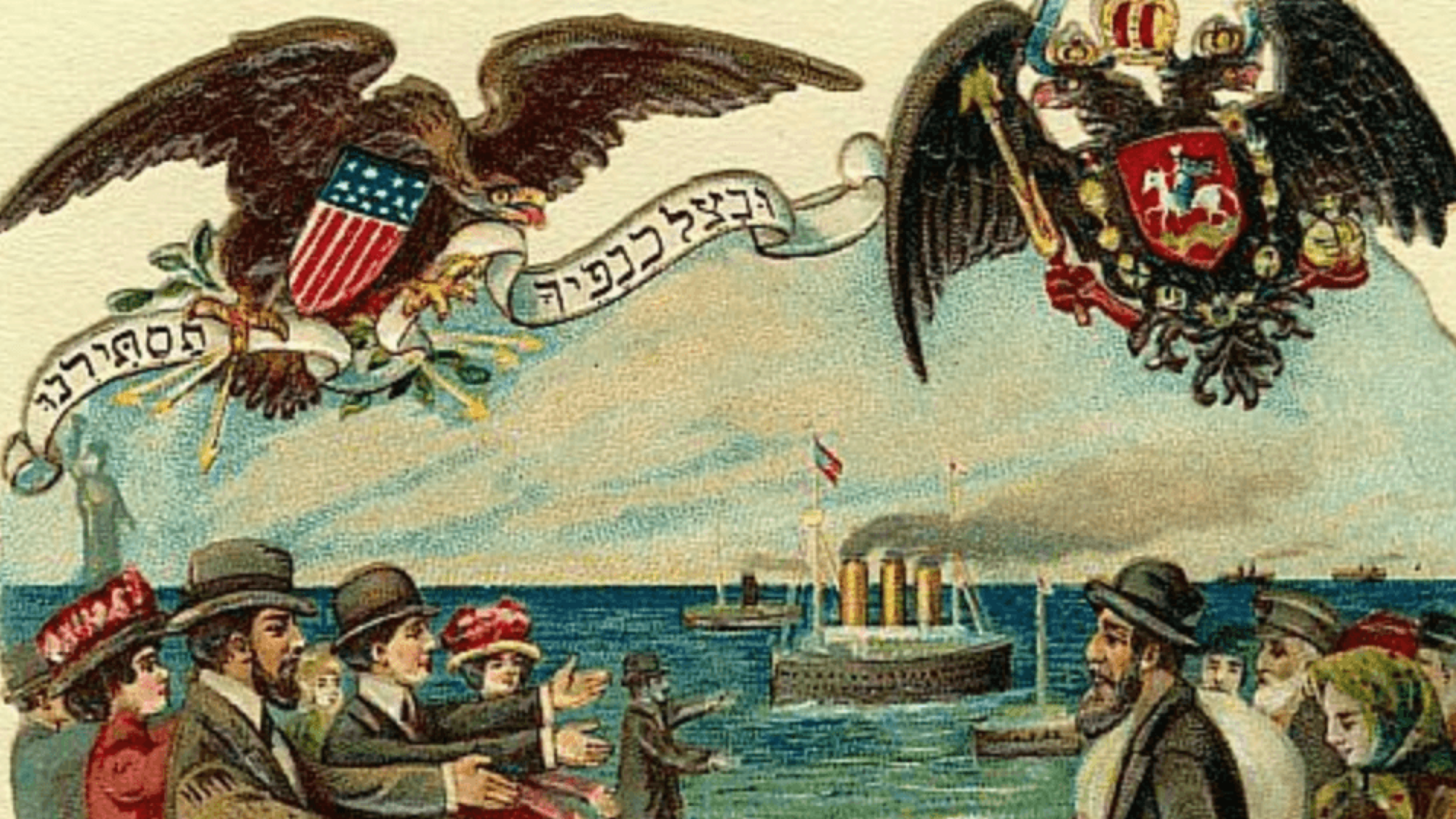VIDEO: Yiddish songs for the 4th of July
Like most immigrant groups, Jews who settled in the U.S. were eager to assimilate, while still holding on to their cultural roots.

Image by Haim Goldberg
Like most immigrant groups, Jews who settled in the goldene medine (the golden land) were eager to assimilate, while still holding on to their cultural roots.
One way to do this was to translate American songs into Yiddish. During the years of mass immigration, between 1881 and 1924, a number of patriotic American songs appeared in the mame-loshn.
As a tribute to these Jewish immigrants, here are four songs, performed by the Yiddish Philharmonic Chorus, that you can listen to as a way of celebrating the Fourth of July.
The first song is “America the Beautiful”, written by Katharine Lee Bates, melody by Samuel Ward. The Yiddish translation by the late Yiddish poet Berl Lapin is as magnificent as the original.
Lapin also translated the American national anthem, the Star-Spangled Banner, into Yiddish. The original lyrics are by Francis Scott Key; melody by John Stafford Smith.
Not all patriotic American songs in Yiddish are translations from English, though. The Yiddish poet Zishe Weinper (1893-1957) wrote the poem, “America” (performed below) while visiting the Grand Canyon. However, as Weinper wrote in the introduction to his poetry collection, “Baym Grend Kenyon” (“At the Grand Canyon”, 1947): “One shouldn’t look for descriptions of the Grand Canyon in these poems … They are variations on the emotions and reflexions from my trip to that magical wonder.”
Finally, here is a song written and composed by Elyokum Zunser, “Zman matn kheyruseynu” (The Time of the Giving of Our Freedom). Musicologist Samantha Zerin has pointed out that after Zunser had experienced the persecution of and hatred towards the Jews in Europe, he viewed his immigration to America as “a second Exodus from Egypt,” a Biblical analogy one can clearly see in the text to this song.
A message from our CEO & publisher Rachel Fishman Feddersen
I hope you appreciated this article. Before you go, I’d like to ask you to please support the Forward’s award-winning, nonprofit journalism during this critical time.
At a time when other newsrooms are closing or cutting back, the Forward has removed its paywall and invested additional resources to report on the ground from Israel and around the U.S. on the impact of the war, rising antisemitism and polarized discourse.
Readers like you make it all possible. Support our work by becoming a Forward Member and connect with our journalism and your community.
— Rachel Fishman Feddersen, Publisher and CEO